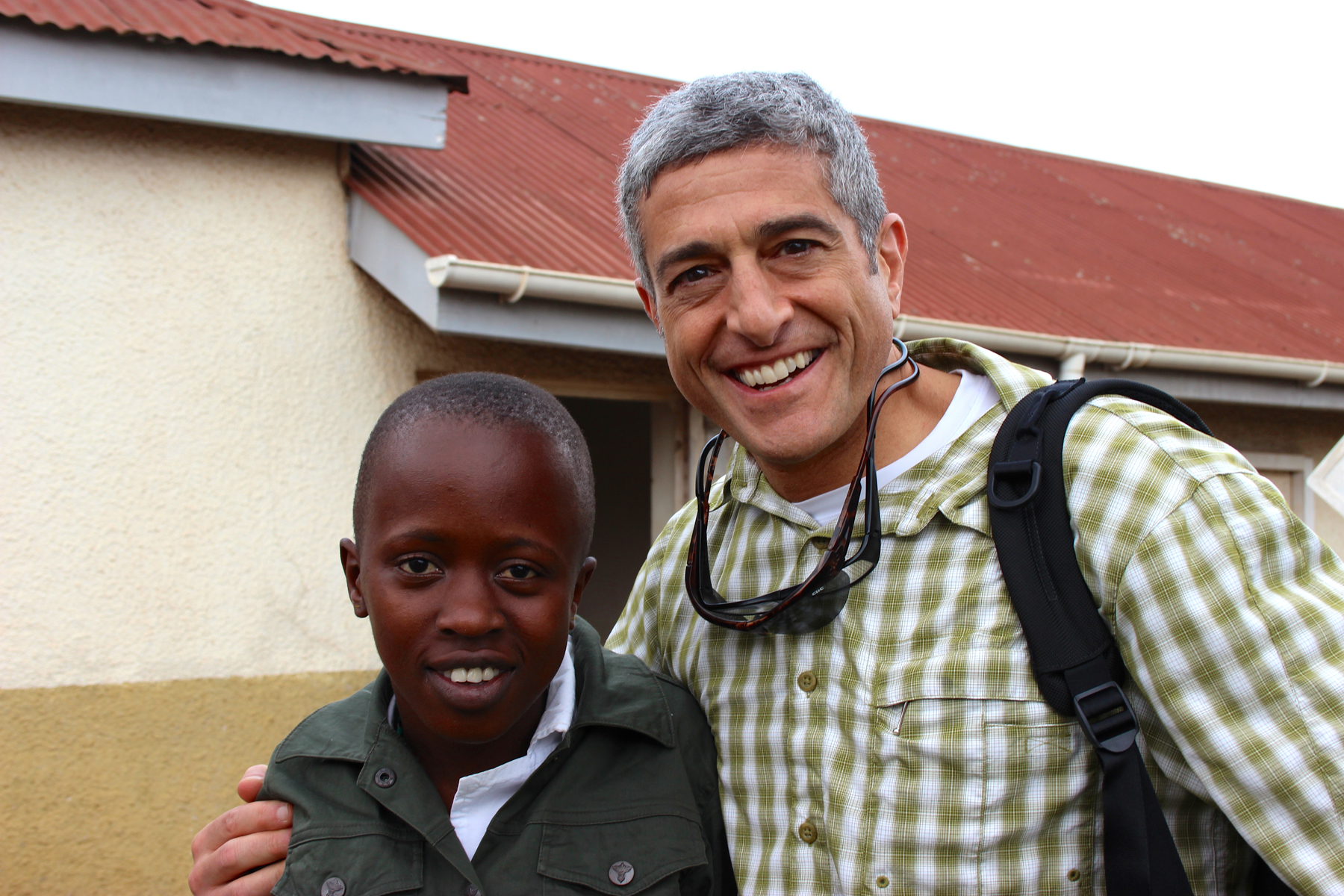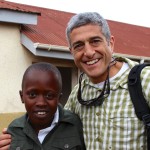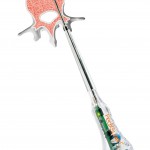
 “On my second trip to Uganda in 2005 I operated on a 15-year-old girl who had fallen out of a mango tree and broke her neck. She was essentially a paraplegic,” recalls Dr. Isador “Izzy” Lieberman, a spine surgeon with Texas Back Institute.
“On my second trip to Uganda in 2005 I operated on a 15-year-old girl who had fallen out of a mango tree and broke her neck. She was essentially a paraplegic,” recalls Dr. Isador “Izzy” Lieberman, a spine surgeon with Texas Back Institute.
“She had limited use of her left arm, was paralyzed in her right arm, and couldn’t walk,” says Dr. Lieberman. “She had fallen out of the tree maybe four or five weeks before I got there. And when I met her all she said to me was, ‘Doctor, I just want to go back to school, doctor, I just want to go to school.’
“We operated on her immediately and, much to my surprise, her spinal cord was only being compressed. It wasn’t actually severed or damaged,” says Dr. Lieberman. “She regained function, went back to school and has actually graduated from high school and is now in college. She sends me her transcripts and receipts, and I see her every year when I return to Uganda, and we’ve kept in touch. In fact, now she’s like a daughter to me and not my patient anymore but a part of my family.
“There are hundreds of kids like Stella who have benefited from the Uganda Spine Surgery Mission. Hopefully one day she’ll make a difference in the world,” adds Dr. Lieberman.
Health Volunteers Overseas (HVO) has honored Dr. Lieberman with the HVO “Golden Apple Award.” As part  of its World Health Day observances, HVO created this award to recognize the extraordinary humanitarian contributions of volunteers like Dr. Lieberman. He has been instrumental in the conception and coordination of the Uganda Spine Surgery Mission, which provides spine care to patients in Mulago, Uganda, and educates spine health care providers there as well.
of its World Health Day observances, HVO created this award to recognize the extraordinary humanitarian contributions of volunteers like Dr. Lieberman. He has been instrumental in the conception and coordination of the Uganda Spine Surgery Mission, which provides spine care to patients in Mulago, Uganda, and educates spine health care providers there as well.
Over the past seven years, Dr. Lieberman also has added fundraising and organization of the Spine Mission to his responsibilities, providing didactic and clinical teaching to the residents, medical students, and nurses, and this training has greatly improved spinal care in Uganda.
The Uganda Spine Surgery Mission comprises doctors, therapists and supporting medical staff who travel to Uganda each year to provide the best possible spine care to Ugandan patients, as well as to teach and train those health professionals in Uganda who serve these patients.
Dr. Lieberman earned his medical degree at the University of Toronto, and completed his residency in orthopedic surgery at the University of Toronto program. His additional training includes spine surgery fellowships at The Toronto Hospital and Queens Medical Centre in Nottingham, United Kingdom.
SpineGuard, based in San Francisco and Paris, has assisted the Uganda Spine Surgery Mission by donating dozens of its PediGuard® devices to the Mission.
“The PediGuard device is very useful,” says Dr. Lieberman, “ because I don’t have an x-ray machine in Uganda, and I have no idea where I am in 3D space, and PediGuard gives me that added layer of assurance so I’m not having to work on my patients blindly.”
By far, pedicle screws are the most common implant used in spinal surgery today. Unfortunately, unacceptably high rates of pedicle screw misplacements in the vertebra persist, which can lead to dramatic neurologic and vascular impairment, such as paralysis and death.
“PediGuard will probably become a standard tool in any spine surgery requiring instrumentation” says Dr. Randy Betz, Orthopaedic Spinal Surgeon, Shriners Hospital – Philadephia PA. “Anything we can do to help us get a safer screw insertion is certainly worthwhile.”
For more information, visit www.ugandaspinesurgerymission.com.